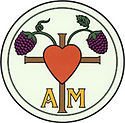- Donald F. Durnbaugh
-
Part of a series on the Schwarzenau Brethren 
Background Christianity · Protestantism · Anabaptism · Radical Pietism · Radical Reformation Doctrinal tenets Non-creedalism · Trine baptism · Love feast · Feet washing · Holy kiss · Free church · Anointing with oil · Non-resistance · Pacifism · The Brethren Card People Alexander Mack · Louis Bauman · Conrad Beissel · Donald F. Durnbaugh · Vernard Eller · Christoph Sauer · John C. Whitcomb Groups Brethren (Ashland) Church · Brethren Reformed Church · Church of the Brethren · Conservative Grace Brethren · Dunkard Brethren · Grace Brethren · Old Brethren German Baptist · Old German Baptist Brethren · Old Order German Baptist Brethren · Old German Baptist Brethren, New Conference Related movements Amish · Bruderhof · Community of True Inspiration · Hutterites · Mennonites · River Brethren · Religious Society of Friends · Christian Peacemaker Teams Donald F. Durnbaugh (1927–2005) was a noted historian of the Church of the Brethren who published more than 200 books, articles, reviews, and essays on its history. In the words of Dale Brown, with whom he taught at Bethany Theological Seminary, Durnbaugh was "the dean of Brethren historians." He was also considered a leading authority on other Anabaptist religious movements.
Educator and church leader
Born in 1927, Durnbaugh earned a bachelor's degree in history from Manchester College in North Manchester, Indiana, in 1949. Following graduation, he engaged in volunteer service in Europe through the Brethren Service Commission, working with refugees in Austria, where he later returned to direct the Brethren Service program (1953–1956). Durnbaugh went on to earn a master's degree in history from the University of Michigan in 1952 and a doctorate in history from the University of Pennsylvania in 1960.
Durnbaugh taught at Juniata College in Huntingdon, Pennsylvania from 1958 until he went to Bethany Theological Seminary in 1962 to teach church history. In 1986, he served in the highest elected position in the Church of the Brethren as Annual Conference moderator. The Church of the Brethren is a Christian denomination of the Anabaptist and Pietist traditions that is committed to living out its faith peacefully, simply, and in community.
In 1988, Durnbaugh became the J. Omar Good Distinguished Visiting Professor at Juniata and, in 1989, the Carl W. Ziegler Professor of History and Religion at Elizabethtown College in Elizabethtown, Pennsylvania. His many professional associations included affiliation with the Young Center for the Study of Anabaptist and Pietist Studies at Elizabethtown College and service as President of the Brethren Journal Association. He was awarded an honorary doctorate by Juniata College in 2003.
Scholarship
Among his numerous books and articles are:
- "European Origins of the Brethren: A Source Book on the Beginnings of the Church of the Brethren in Early Eighteenth-Century Europe" (Brethren Press, 1958)
- "Brethren in Colonial America: A Source Book on the Transplantation and Development of the Church of the Brethren in the Eighteenth Century" (Brethren Press, 1967)
- "The Believers' Church: The History and Character of Radical Protestantism" (Macmillan, 1968)
- "Every Need Supplied: Mutual Aid and Christian Community in the Free Churches, 1525–1675" (Temple University Press, 1974)
- "The Brethren Encyclopedia, Volumes I–III (Ed.) (Brethren Encyclopedia, Inc., 1983)
- "Meet the Brethren" (Ed.) (Brethren Press, 1984)
- "Pragmatic Prophet: The Life of Michael Robert Zigler" (Brethren Press, 1989)
- "Fruit of the Vine: A History of the Brethren, 1708–1995" (Brethren Press, 1997)
At the time of his death in 2005, he was in the process of editing Volume IV of the Brethren Encyclopedia, with co-editor Dale Ulrich and contributing editor Carl Bowman. Published in 2006, this volume included new information on the Brethren from 1980 to 1995, a comprehensive index covering all four volumes, and additions and corrections to the first 3 volumes.
Categories:- 1927 births
- 2005 deaths
- Christian writers
- American members of the Church of the Brethren
- Church of the Brethren clergy
- Manchester College (Indiana) alumni
- University of Michigan alumni
- University of Pennsylvania alumni
Wikimedia Foundation. 2010.
